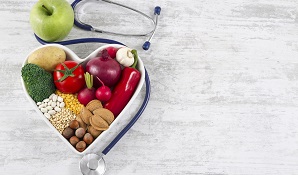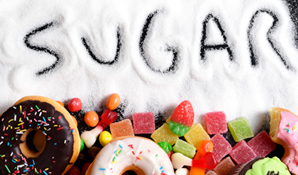It used to be much easier to understand nutrition when we all believed that fat was bad and low-fat was good. However, since more recent research has shown us that it can be tricky to work out what to eat to stay “heart healthy”.
We spoke to Gabriel Eksteen, a registered dietician at the Heart and Stroke Foundation SA, for his insight into which fats we should be enjoying and which fats we should be avoiding to keep our hearts in good ticking order.
So which are the good fats, or fat-containing foods? Fats that have been shown time and again to be beneficial for heart health are monounsaturated and polyunsaturated oils and fats. You can recognise these unsaturated oils by the fact that they are usually liquid at room temperature.
Monounsaturated fats help to increase HDL (high-density lipoprotein – the good cholesterol that removes the damaged cholesterol particles that cause artery blockages from your bloodstream), and polyunsaturated fats are essential fats that your body can’t produce on its own. They build cell membranes, nerve sheaths, and are needed for blood clotting, muscle movements and fighting inflammation.
Excellent sources of unsaturated fats include: olive oil, canola oil, nuts, seeds and avocados.
Omega 3 fatty acids are a type of polyunsaturated fat that is particularly beneficial to heart health, and most people don’t eat nearly enough of them. You can find Omega 3s in oily fish such as salmon, pilchards, mackerel and snoek – as well as in tinned fish. For people who don’t eat fish, canola oil, flax seeds, walnuts and chia seeds are also good sources.
And which are the bad fats, or fat containing foods?Animal fats are mostly saturated fats, which are generally regarded as being less healthy for you than plant-based fats. Saturated fats, which are commonly solid at room temperature (think butter or solidified bacon grease), drive up your LDL (low-density lipoproteins – the bad cholesterol which collects in your artery walls can cause a heart attack). So make the substitution to unsaturated fats wherever you can.
You may have heard that coconut oil has fantastic health benefits, but it does contain predominantly saturated fat. There is very little research on coconut oil so far, so until we know more, it’s best to be careful and keep an eye on blood cholesterol levels if you do use it.
Trans fats, which are mainly created during industrial processing are definitely bad news and should be avoided as far as possible. These used to be present in large amounts in margarine and baked goods like biscuits, but since the South African government regulated against them, in general our levels are much lower than in the United States. They can be listed on food labels as “partially hydrogenate fats”.
Then what is a heart-healthy diet? Eating healthily is about more than just nutrients or counting calories. It is about the food choices we make every day and how these choices add up to affect our healthy. It’s about making smart food choices most of the time. Here are some pointers:
- Eat more healthy foods like vegetables and fruits, whole grains, beans, nuts and seeds, fish and dairy.
- Eat dairy foods for calcium, minerals and vitamins,
- Eat wholegrain starchy foods like whole-wheat bread, brown rice, oats, whole-wheat pasta and barley instead of refined cereals,
- Eat fish, eggs and lean meat instead of processed and fatty meats.
- Use plant oils like olive oil, canola, avocados, nuts and seeds instead of hard fats (butter, brick margarine or lard), and
- Drink water or unsweetened tea or coffee instead of sugary drinks.
- Avoid food with added sugar, salt, saturated and trans fats. Healthy eating doesn’t mean you should never eat your favourite take-away or dessert, but these should not be your regular foods.
Look out for the Heart Mark on foods to help you choose healthier options.
Other than diet, what should I do to keep my heart healthy?Keeping your heart healthy is about so much more than what you eat. The four other most important contributors to heart health are: plenty of exercise, not smoking, drinking alcohol in moderation or not at all, and managing stress levels.
And lastly, be aware of your risk levels. There is a genetic component to heart disease. Even if you do all the right things, some people have higher bad cholesterol than others.
September is Heart Month, so take the opportunity to have your cholesterol, blood pressure and blood glucose taken, and your weight and waist circumference measured at any Dis-chem pharmacy for free. You also get a full lipogram for free, which measures the different types of cholesterol, including total LDL, HDL and triglyceride levels at Dis-chem, but preferably make a booking and don’t eat for two to four hours beforehand.
Have a happy, healthy Heart Awareness Month!




